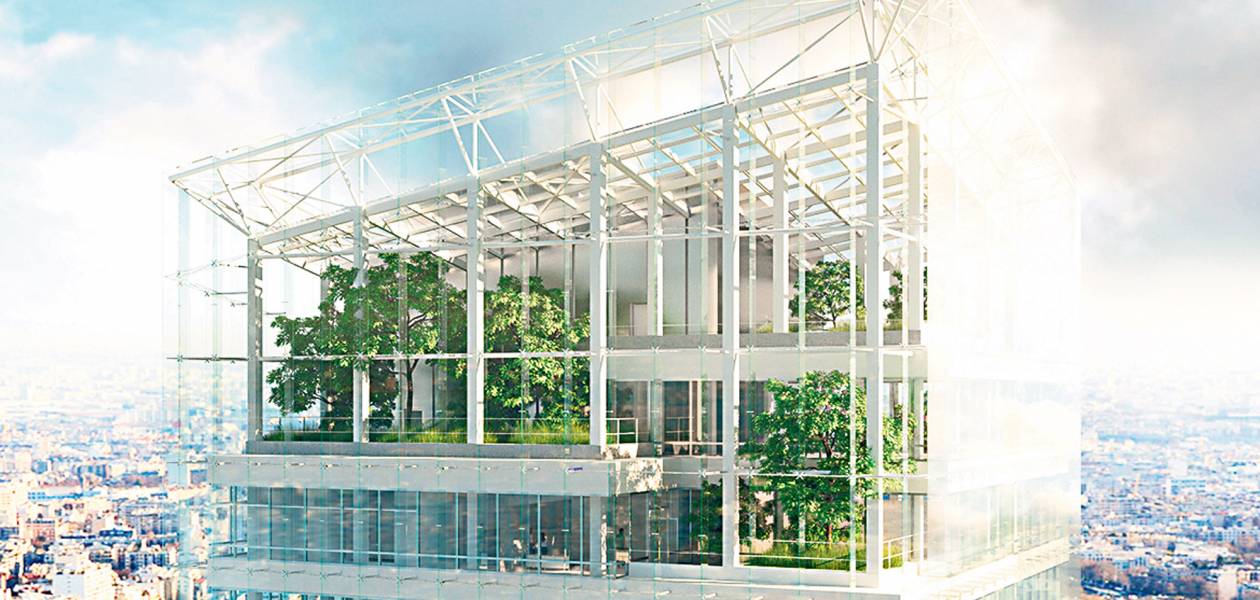
Saint-Gobain was created in 1965. The group designs, produces and distributes materials and solutions. Its fields of activity are building, transport, infrastructure and industrial applications. In 2019, its turnover was just over 42 billion euros. 171,000 people are employed in 70 countries.
The nature of Saint Gobain's activities gives it an important responsibility in terms of sustainable development. And all the leaders understood this well.
“Large groups must be tireless activists for responsible and sustainable development, aware that their size and their global reach provide a rare forum for defending these values. » Declared Pierre-André de Chalendar, Chairman and CEO of Saint-Gobain
That is why a clear and ambitious objective has been set: achieve carbon neutrality by 2050. However, this desire to reduce the environmental impact of its activities does not date from today. On September 23, 2019, Saint Gobain signed the Business Ambition for 1.5 ° C commitment of the United Nations Global Compact.
According to comments from a Saint Gobain manager, the commitment is a real guideline: "Today, in November 2020, we are committed to reducing by 33% by 2030 * our scope 1 emissions (emissions direct from our factories) and scope 2 (emissions related to electricity); and our scope 3 emissions (emissions on our value chain) by 16% over the same period. As we move towards our 2050 target, we strive to make each of these interim efforts more ambitious - with carbon reduction commitments in more policy areas, moving from incremental improvements to significant step changes, also being able to offset the potential increase in our emissions due to growth during this period. Our responsibility for carbon neutrality has multiple origins. Given, for example, that the building sector - one of Saint-Gobain's main markets - currently accounts for 38% of greenhouse gas emissions globally, with an urban population likely to double in over the next 30 years, we must respond on behalf of society as a whole. "
Increasingly promoting the circular economy, Saint-Gobain must provide new solutions and re-invent its manufacturing processes and include in the loop all the actors participating in its businesses in order to achieve an approach collective decarbonization.
Saint Gobain's roadmap to minimize the impact of its businesses is as follows:
- the development of materials that have less impact on the environment
- less and better use of energy
- initiate a collective approach with suppliers and carriers
- the development of processes to trap the carbon produced
- the allocation each year of 100 million euros until 2030 to industrial investments and research and development targets to achieve the objectives
- the preservation of the environment
To do this, Saint Gobain outlined in a report the five major axes around which to base its strategy:
• a policy of sustainable management of resources through a minimum of production residues, reuse, and the integration of a maximum of recycled content in our products,
• a reduction in energy consumption and greenhouse gas emissions from our industrial processes, our infrastructures and our transport thanks to our industrial excellence programs (WCM), the involvement of all operators, sharing of good practices ...
• a reduction in water withdrawals to move towards “zero discharge” of industrial water, starting with areas of water stress and taking care not to compete with local populations' access to drinking water,
• preserve, restore, strengthen and enhance the biodiversity of all our sites,
• anticipate and deal with risk factors linked to environmental accidents and nuisances.
- the fight against climate change by reducing carbon emissions in its businesses thanks in particular to r & d
- strengthening the circular economy
To this end, the company is working towards an ever greater integration of recycled or renewable materials. We must extend the lifespan of materials and integrate eco-innovation principles from the design stage. No more waste should be non-recovered over time.
Finally, a group manager reinforced the group's approach by declaring: “Our group is a committed actor for the climate, aware that this issue requires the cooperation of States, companies and civil society around a demanding international framework. We support in particular the recommendations of the Task Force on Financial Disclosure (TCFD) and we adhere to Science-Based Targets (SBT) since 2018. We are positioning ourselves as an accelerator of the deployment of sustainable construction through our participation in Green Building Councils (GBC) ), a network of various actors working to create sustainable buildings that limit the sector's impact on the environment. "
Posted on 2021-02-24 18:50








Comments